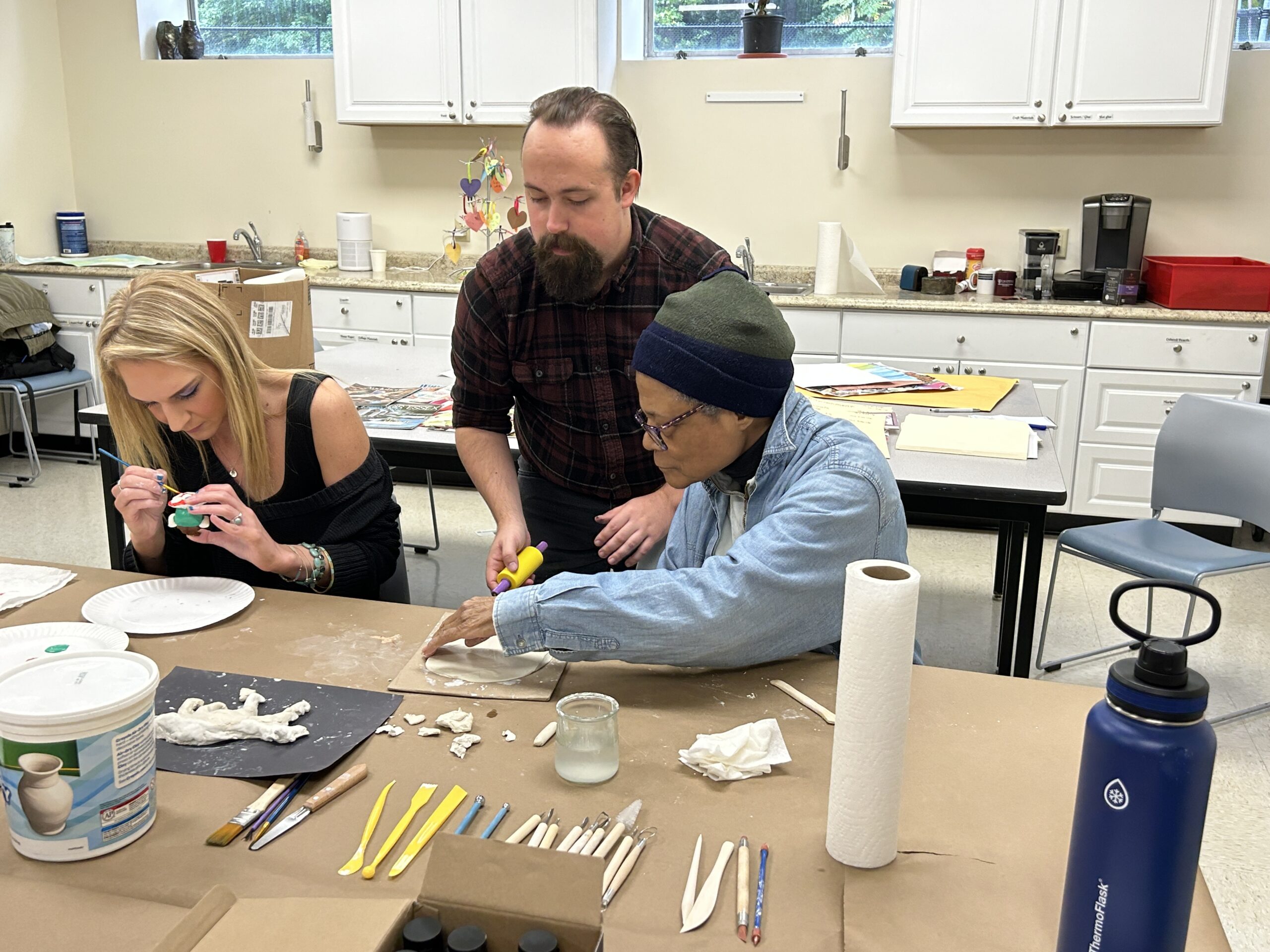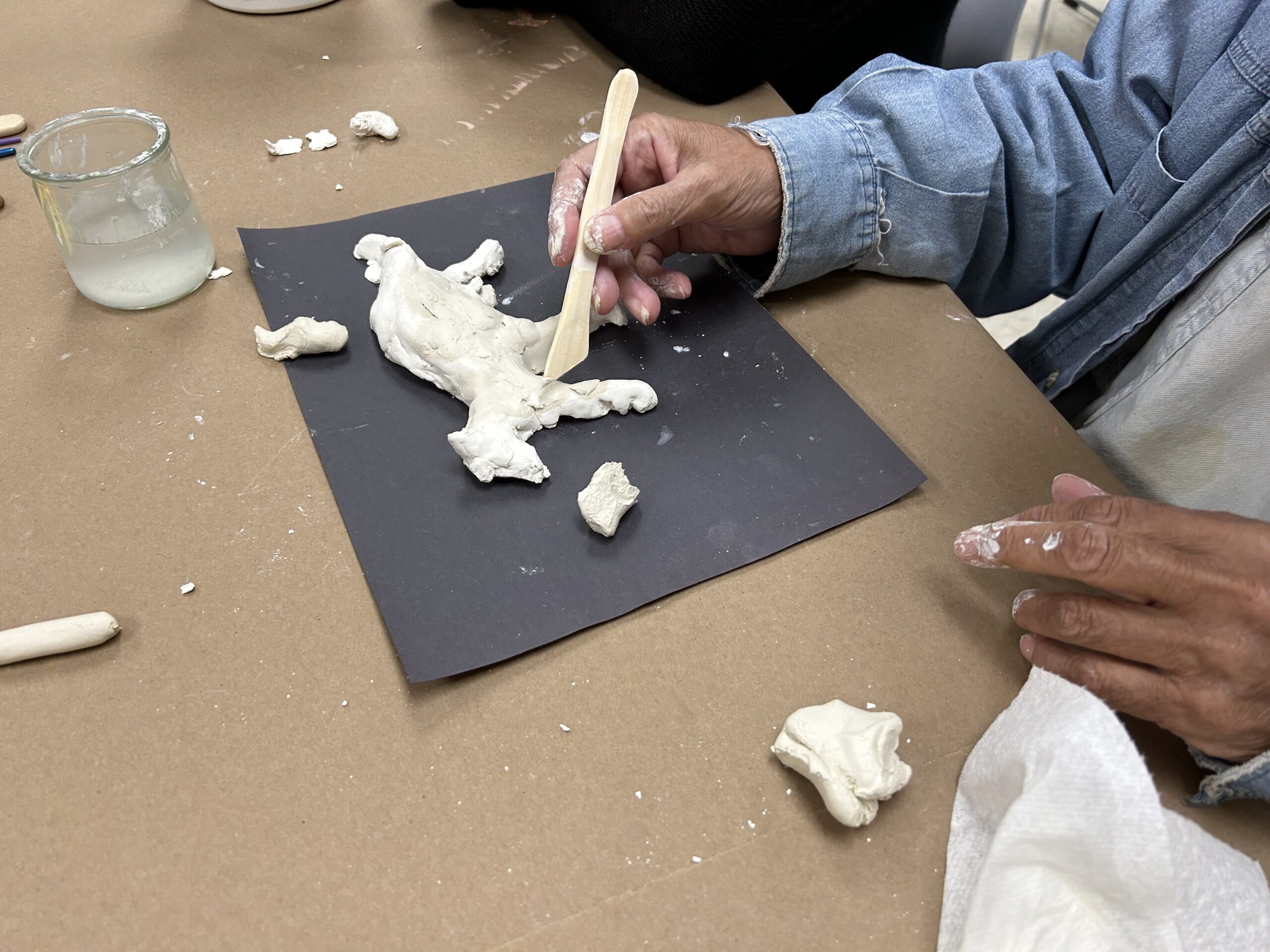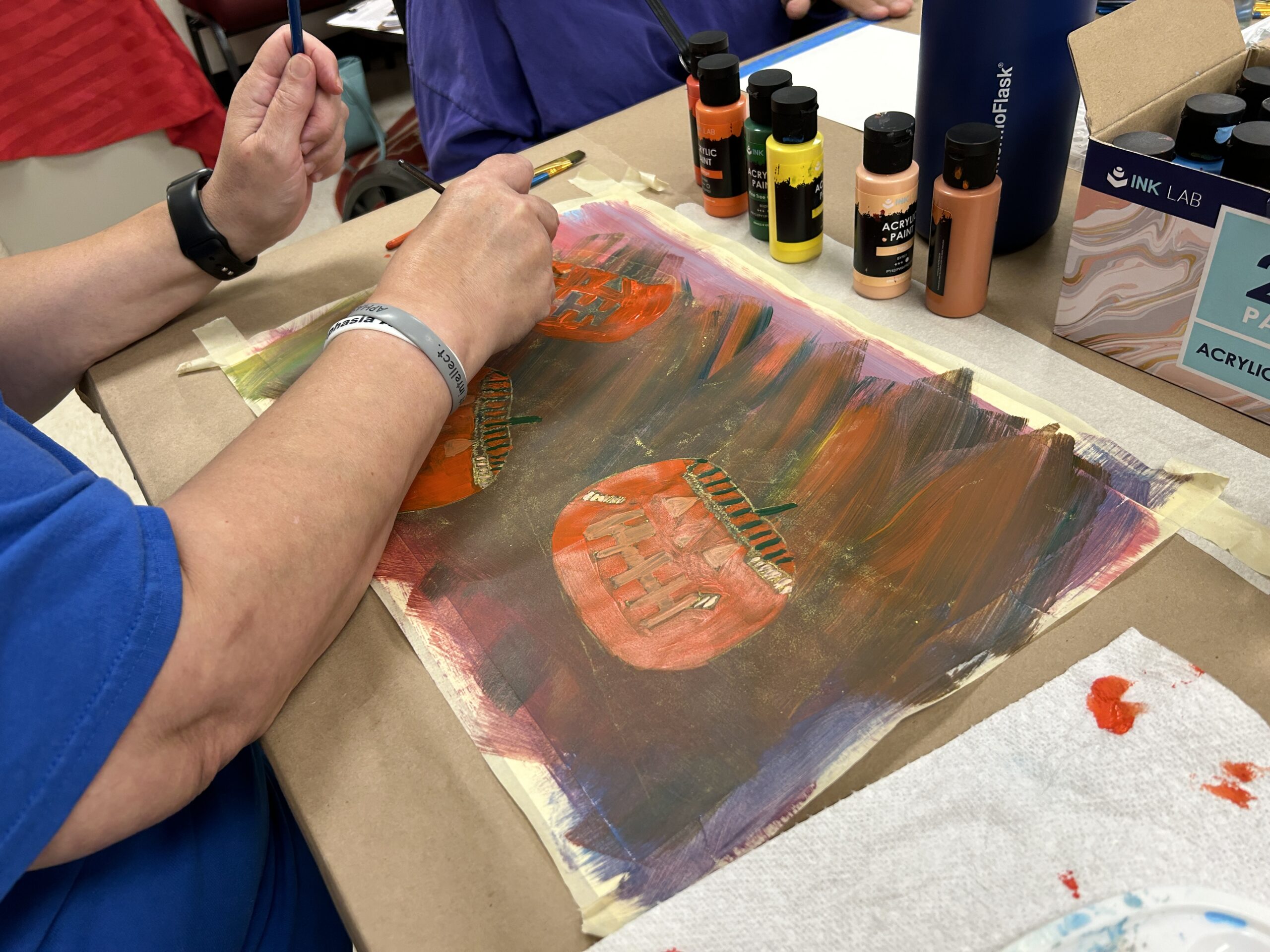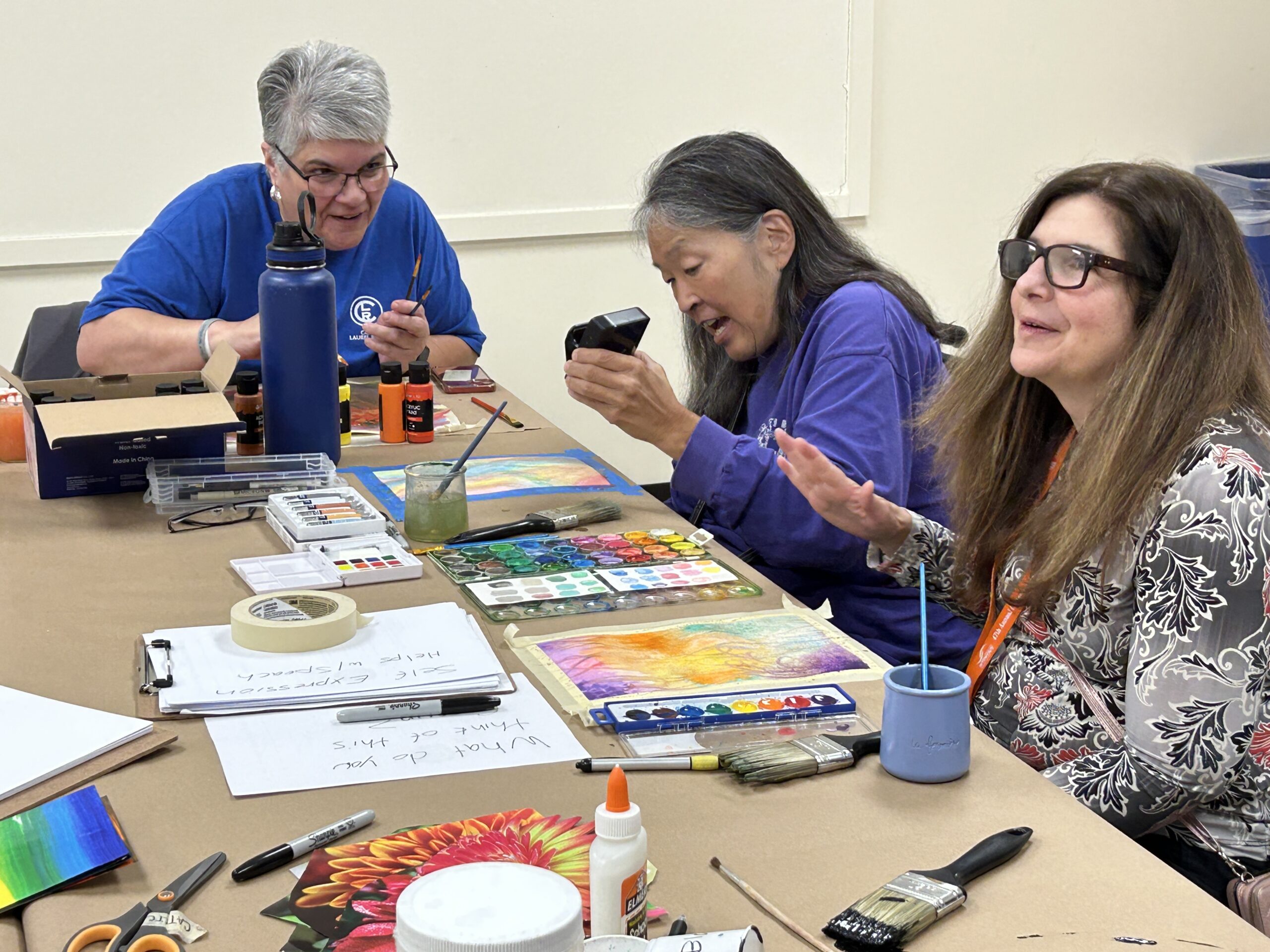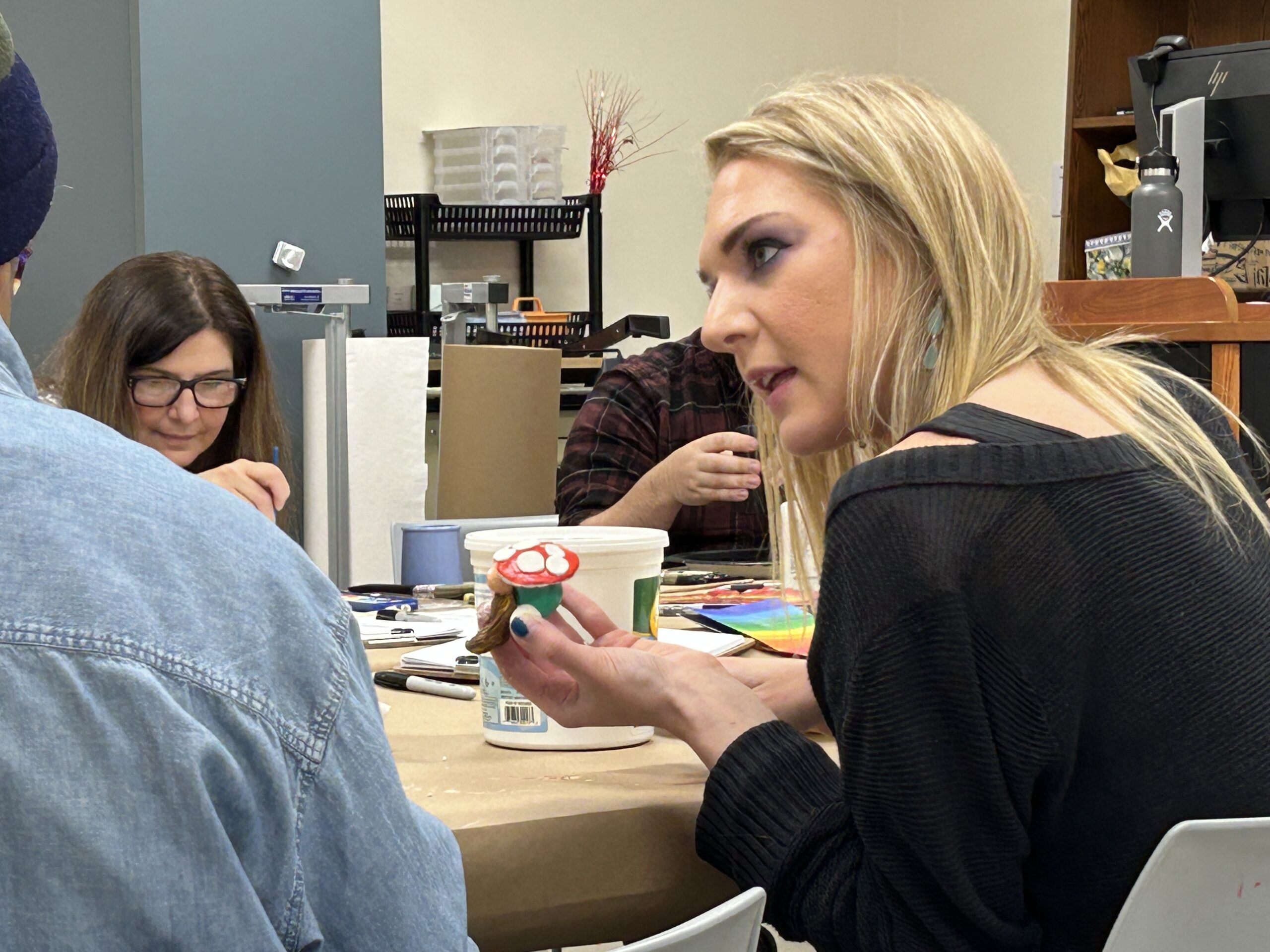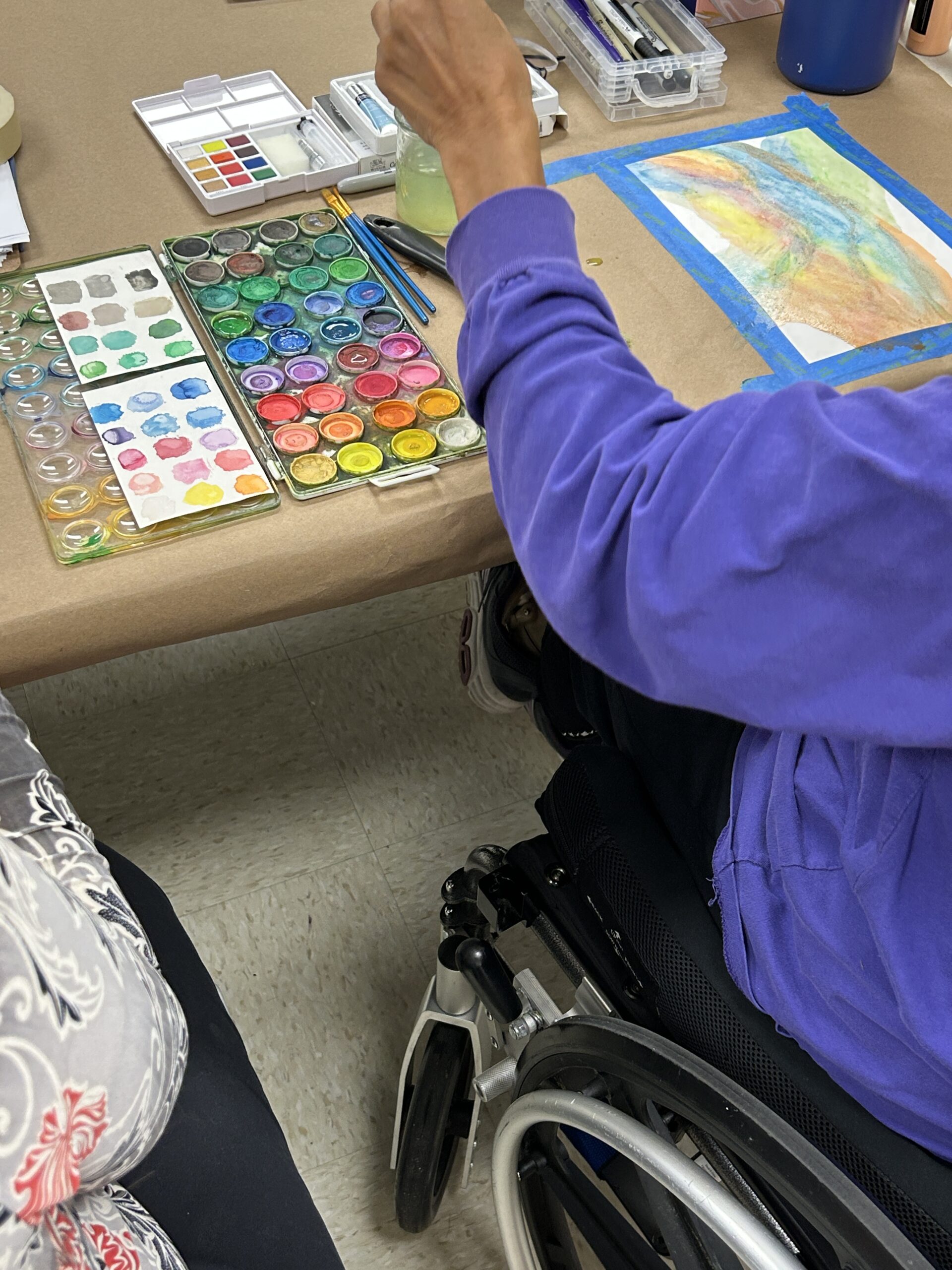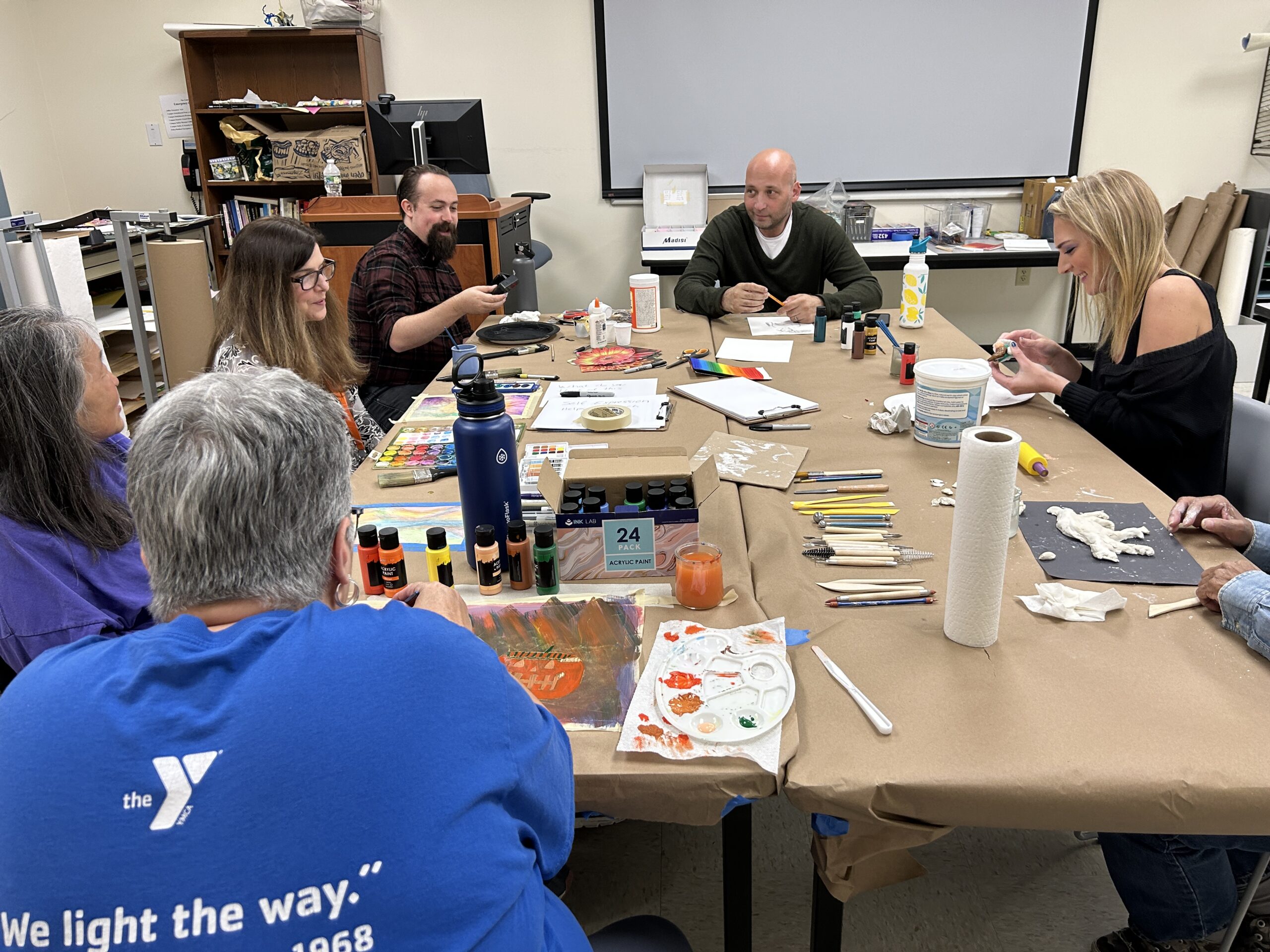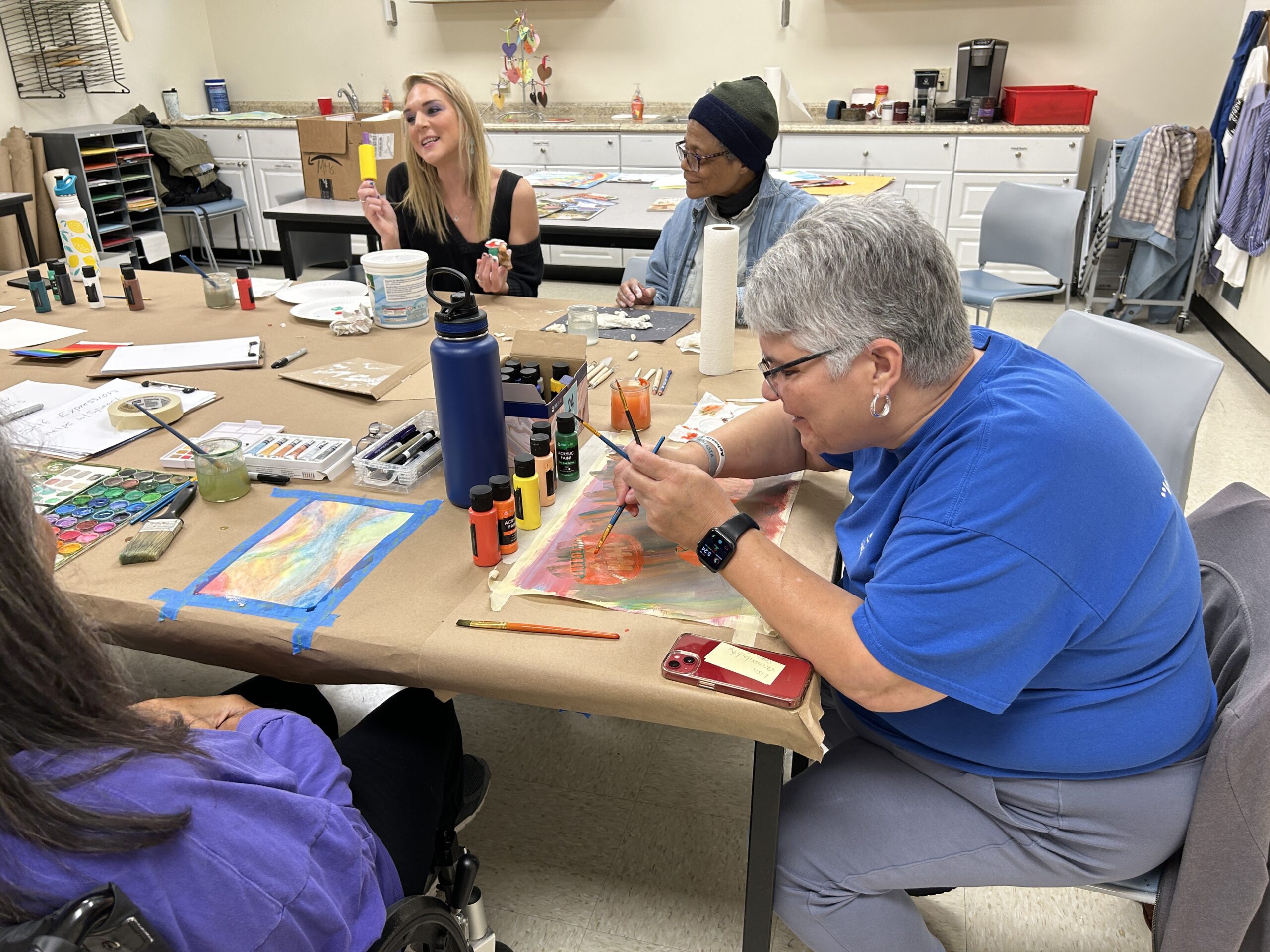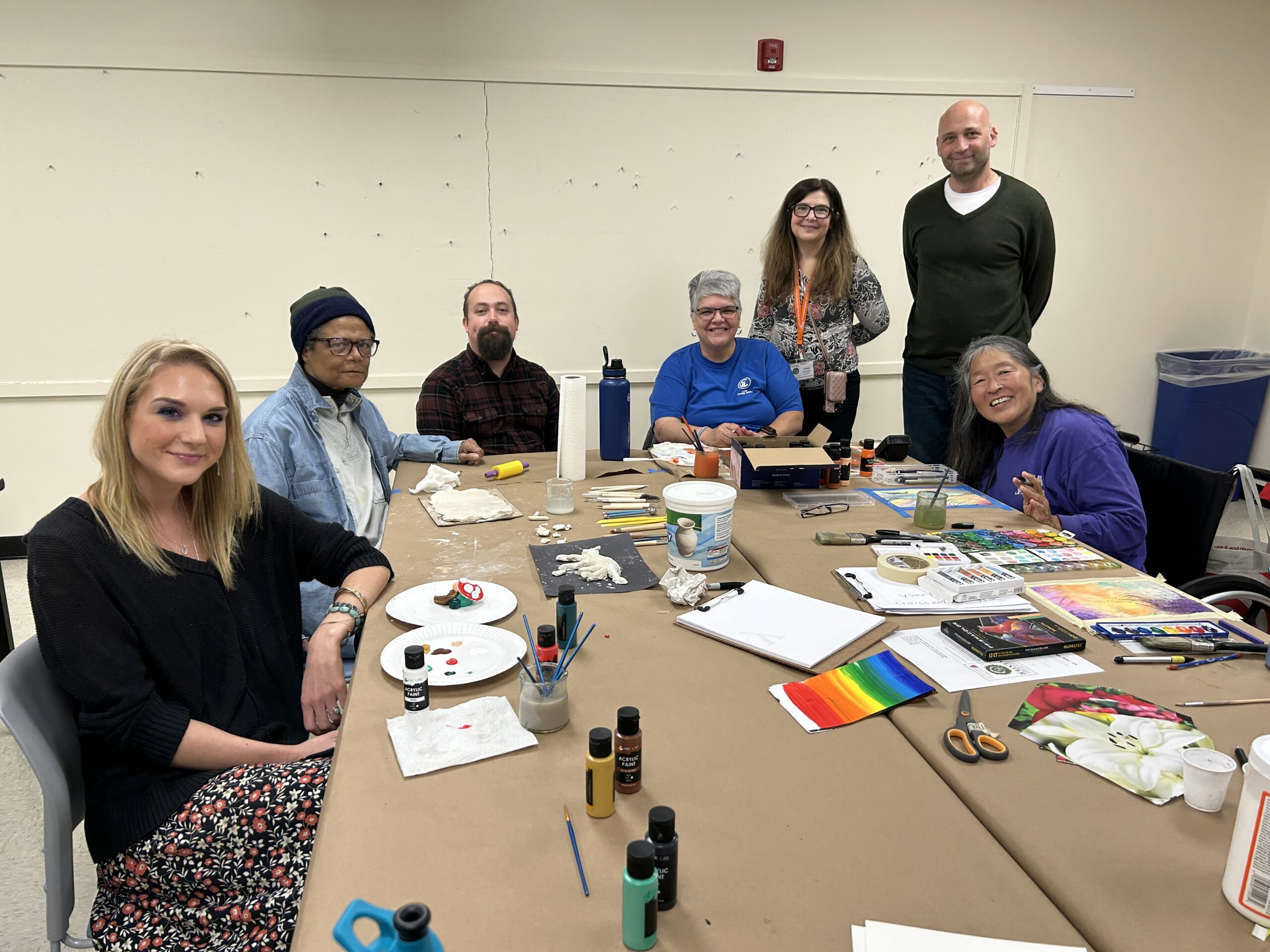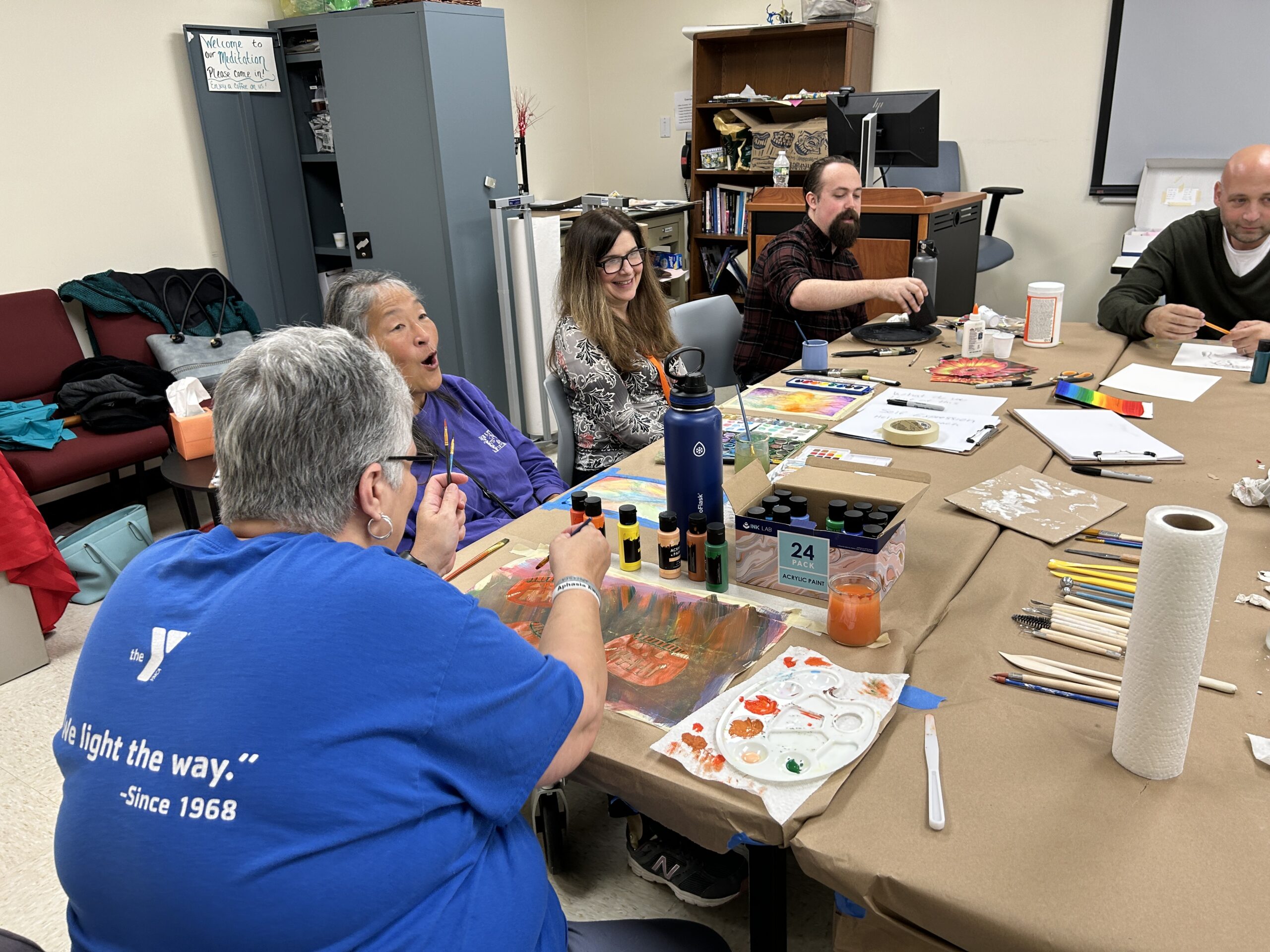Caldwell University
October 23, 2023
Express it! Aphasia group opens up paths for communication and friendship
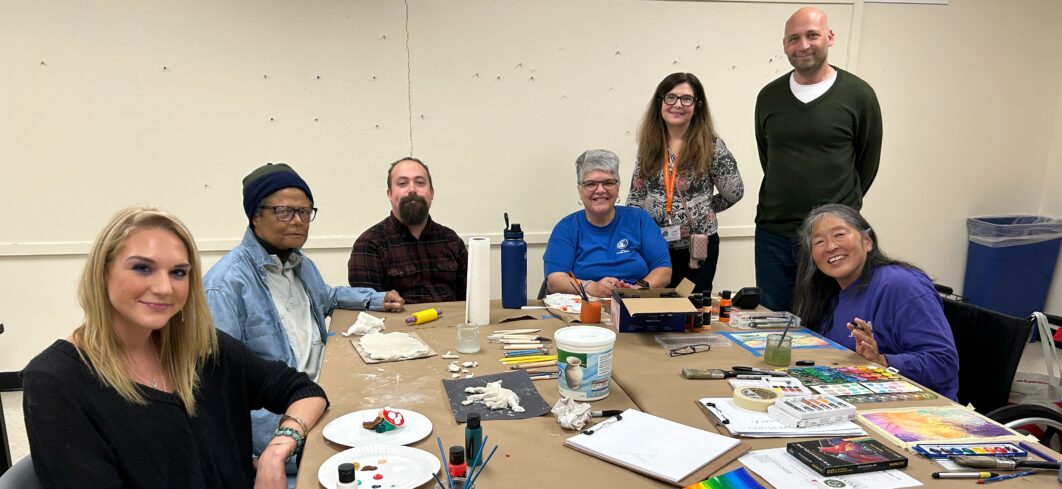
Susan never did art before her stroke seven years ago. Now she paints on Saturday afternoons with friends in her Express It! With Aphasia group at Caldwell University’s Mary Jo Rolli Codey Center. “The art helps me with my speech,” she said as she worked on her watercolor painting.
Maureen has very little language but she lights up the room with her engaging personality, bright smile and acknowledgment of every person around her. Her daughter said participating in Caldwell’s support group has opened up a new world for her mother, who suffered a stroke five years ago. Before the stroke, Maureen wasn’t very social, now that has changed. She communicates skillfully through non-verbal means, gestures, eye contact, joking with friends and bringing much joy to everyone in the room. “She is not afraid to compliment others, even though she can’t say the words,” explained her daughter. “Making friends helped her keep going. She had to push herself. I’m very happy to see it.”
According to the National Aphasia Association, approximately 2 million Americans are affected by the acquired communication disorder that impairs a person’s ability to process language. Aphasia does not affect intelligence. It does impair the ability to speak and to understand others, and most people with aphasia experience difficulty reading and writing.
Cindy Concannon, alumna and clinical director of the Center, said clinical mental health counseling with expertise in art therapy helps aphasia clients combat isolation, find identity and maintain cognition. “It’s all about the self-expression, not so much about the finished product.” She uses concepts like a “life participation” approach and supportive communication. “I like to call it ‘communication by all means,’” said Concannon. Each person with aphasia has unique challenges, so she adapts to each client, helping them use drawings, gestures, body language, the writing of key words, focusing on one word at a time and asking yes/no questions for clarity. Then she summarizes this communication back to the client. Supporting clients emotionally as they process their challenges.
Clinical supervisors, Concannon, alumna and Cindy Hamilton and faculty member Dr. Dan Summer, guide student interns in the Master’s degree program in clinical mental health counseling with a concentration in art therapy in their work with clients. Zach Ashbury and Monika Jastrzebski are graduate interns in the Center. Clinical mental health counseling with art therapy expertise opens up a “whole new way of communication…,” said Ashbury. The [Express It! with Aphasia group] is much needed by clients, bringing them wholesome activity, encouragement along with creativity, said Jastrzebski.
The room is filled with life, colorful paints and art tools along with calming background music. At times, there is an extended silence as the artists work intently on their projects. Then someone will look up and laughter erupts in the room.
“We do our best to get here every week. It’s clay and play,” said Lucy, who is also a stroke victim. Her sister is next door–in the caregivers’ room–where she can enjoy her lunch, relax and listen to soothing music. One Saturday they could not make it to the session and Lucy was disappointed. “She looks forward to it every week,” said her sister.
The clients and caregivers appreciate the caring Center staff and graduate students. They have a community now, both at the University and at the Adler Aphasia Center in Maywood, which Caldwell also partners with. “It is great for her and us,” said Maureen’s daughter.
And the University staff and graduate students’ lives have been enriched too. As Concannon said: “The group is life-affirming and the participants have so much to offer in talent and life experiences.”
***The names in this story have been changed for privacy.
More about the Center
The Mary Jo Rolli Codey Center provides clinical mental health counseling services and clinical mental health counseling services with art therapy expertise to children, adults, adolescents, and a number of community groups including the West Caldwell, Caldwell and Livingston libraries, Marion Manor and St. Catherine’s Health Care Center.
For information on receiving mental health and support services, call the Mary Jo Rolli Codey Center at 973-618-3668 or email director Cindy Concannon at catctc@caldwell.edu.
History
Caldwell University has been training clinical mental health counselors with an art therapy concentration for over 20 years. The program is accredited by the Council for Accreditation of Counseling and Related Educational Program (CACREP) and the Commission on Accreditation of Allied Health Education Programs (CAAHEP). Graduates are prepared to pursue licensure in New Jersey as a Licensed Professional Counselor (LPC) and a Licensed Professional Art Therapist (LPAT). Find out more about clinical mental health counseling with art therapy concentration education through the program coordinator, Professor Annette Vaccaro at avaccaro@caldwell.edu
ACADEMIC OPTIONS:
M.A. in Counseling
- Clinical Mental Health with Counseling Specialization
- Clinical Mental Health with Counseling Art Therapy Specialization
- School Counseling Specialization
Combined B.A. in Psychology/M.A. in Counseling
Post-Graduate M.A. in Art Therapy
Post-Master Director of School Counseling
Post-Master Professional Counselor Licensing Credits
Post-Master School Counseling Specialization






